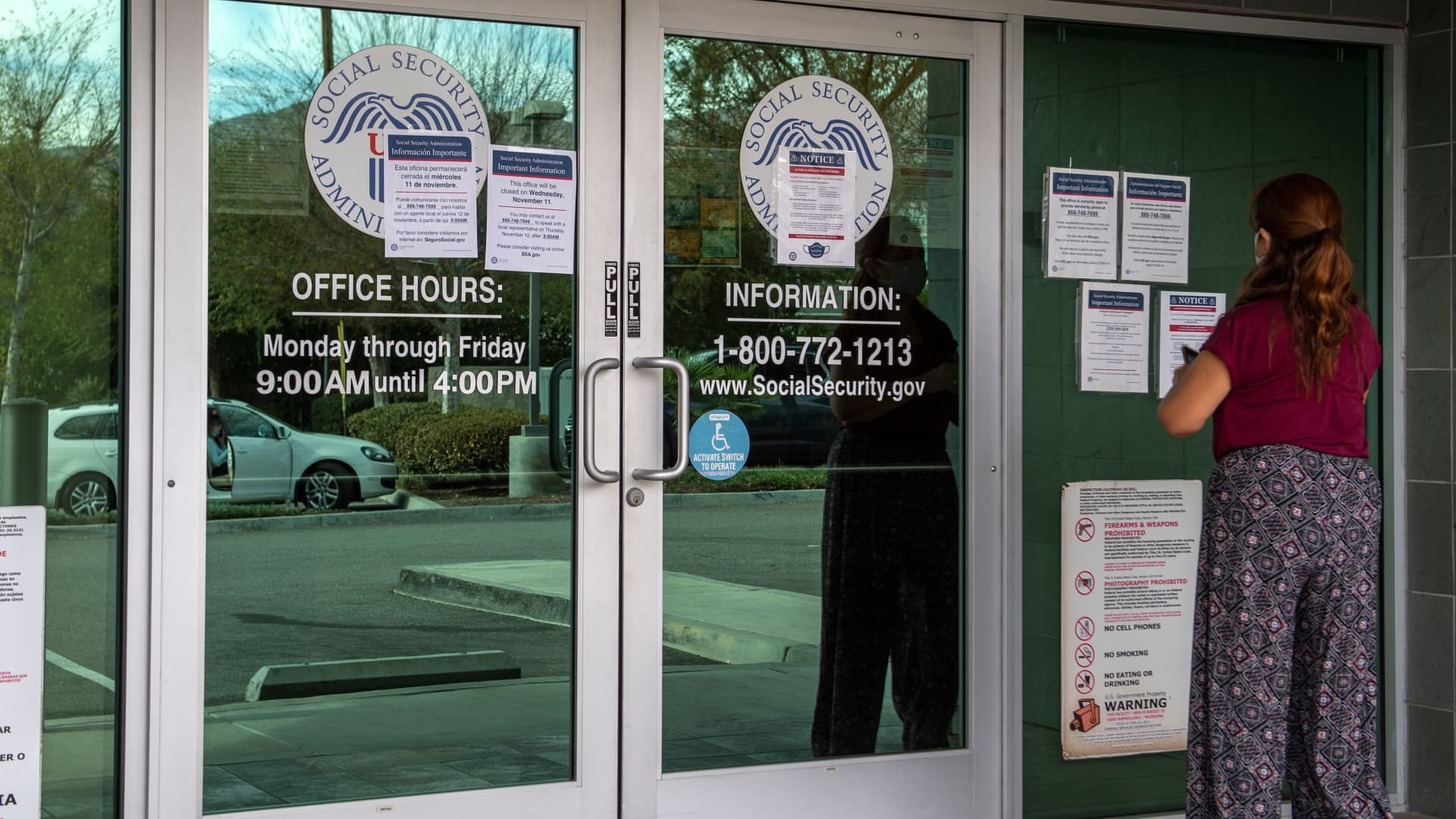Customer service wait times from Social Security may be improving, at least for mail correspondence.
A new report from the Social Security Administration Office of the Inspector General details the results of an investigation into deficiencies in the agency’s handling of U.S. mail during the Covid-19 pandemic.
In response, the federal agency said that all backlogs of unprocessed mail have been eliminated, while it has also established new guidance to improve its handling of mail. The Social Security Administration has also agreed to implement all the recommendations the Office of the Inspector General has made for improvements.
More from Personal Finance:
Settled medical debt is getting wiped from credit reports
Social Security isn’t bankrupt: What to know about future benefits
70% of retirees would tell their younger selves to start saving earlier
Shuttered Social Security offices boosted mail volume
The Social Security Administration mostly shuttered its offices to in-person services in response to the Covid-19 pandemic in March 2020. As a result, beneficiaries and other people with inquiries had to rely on mail and telephone communication.
This “significantly increased” the volume of U.S. mail, with processing strained as about 90% of the agency’s staff was working remotely, according to the Office of the Inspector General. The investigation did not address the long wait times via Social Security’s 800 telephone number, which benefit applicants and others have complained about.
An investigation by the Office of the Inspector General released last year found one program service center still had more than 9,000 unprocessed documents. Some of those documents were necessary to confirm eligibility for benefit payments.
Backlog held up key documents, slowed applications
Replacement Social Security cards were also held up, with one card center having more than 9,000 unprocessed applications, last year’s report found.
The mail backlog affected the tracking and return of original documents, such as birth certificates, driver’s licenses, passports and naturalization documents provided as proof for Social Security cards or benefit eligibility.
Other issues included large quantities of undeliverable mail, original documents stored in unsecure locations, backlogs of unprocessed applications for new or replacement Social Security cards, and remittances or unnegotiated benefit checks.
Notably, the Office of the Inspector General’s observations were based on visits to select offices. It has not revisited those locations to make sure the mail backlogs have been processed or to verify that the new mail procedures are working.
The Social Security Administration reported about 99% of its offices were meeting new timeliness guidelines to better manage its mail workload as of January. However, members of the National Council of Security Management Associations have reportedly expressed concerns that those timeliness guidelines may adversely affect other workloads.
“We are pleased that SSA has reportedly improved some of the issues identified in our interim report and hope that SSA continues to improve its handling of documents and mail processing,” Gail S. Ennis, inspector general for the Social Security Administration, said in a statement.
